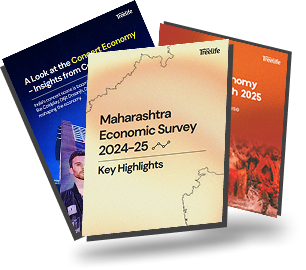Blog Content Overview
- 1 Promotion and Regulation of Online Gaming Bill, 2025
- 2 What Does the Gaming Bill 2025 Propose?
- 3 What Are the Impacts of the Gaming Bill 2025?
- 4 What Are the Legal & Constitutional Challenges?
- 5 Industry Fallout: Who’s Hit the Hardest?
- 6 Key Contentious Issues
- 7 Government’s Clarification
- 8 Conclusion
- 9 Want to Know More?
Promotion and Regulation of Online Gaming Bill, 2025
India’s online gaming industry is at a decisive turning point. With over 500 million users and revenues crossing ₹25,000–31,000 crore in 2024, gaming has been one of the fastest-growing segments of the digital economy. Real-Money Gaming (RMG) including fantasy sports, rummy, and poker contributed nearly 85% of industry revenues, with projections of reaching ₹50,000 crore by 2028.
The Promotion and Regulation of Online Gaming Bill, 2025 (“Gaming Bill 2025”) aims to reshape this sector by banning all forms of real-money gaming while promoting e-sports and social gaming. While the Bill seeks to protect users from risks like addiction and financial losses, it has also sparked debates about economic disruption, constitutional validity, and employment impact.
What Does the Gaming Bill 2025 Propose?
1. Ban on Real-Money Gaming (RMG)
- All online games involving user deposits, fees, or stakes for monetary gain are prohibited.
- This removes the long-standing “skill vs. chance” distinction treating games like poker, rummy, and fantasy sports as gambling.
- Advertising, payment facilitation, and transfers related to RMG are also banned.
2. Classification of Games
The Bill introduces three key categories:
- Online Money Games (Banned): Dream11, MPL, Junglee Rummy, PokerBaazi, Zupee, WinZO, etc.
- E-Sports (Allowed): Games recognized under the National Sports Governance Act, 2025 — such as BGMI, Dota 2, CS:GO.
- Online Social & Educational Games (Allowed): Minecraft, Clash of Clans, Pokémon Go, learning-based games.
3. Enforcement & Penalties
The Bill sets up a Central Gaming Authority with powers to classify games, regulate platforms, and conduct searches in virtual digital spaces. Penalties include:
- Creation of a Central Online Gaming Authority (COGA) with powers to classify, license, and regulate platforms.
- Penalties: Up to 3 years imprisonment or ₹1 crore fine for first-time violations.
- Repeat offenders face 2–5 years imprisonment and fines up to ₹2 crore.
- Authorities may order app blocking, payment gateway suspension, and even conduct searches in digital spaces without warrants.
What Are the Impacts of the Gaming Bill 2025?
| Impact Area | Details |
|---|---|
| Industry Loss | RMG (USD 2.2B in 2023, projected USD 8.6B by 2028) faces elimination. |
| Tax Revenue | Potential loss of ₹20,000 crore; GST collections of ₹75,000+ crore at risk. |
| Startups & Investment | Over 400 startups and ₹22,931 crore of funding endangered. |
| Employment | Over 100,000 jobs directly at risk; sector had potential to create 250,000 more. |
| User Safety | Ban could push 568 million gamers to offshore platforms with no consumer protection. |
| Innovation | Sector employing 200,000+ professionals and attracting ₹25,000 crore FDI could stagnate. |
What Are the Legal & Constitutional Challenges?
Article 19(1)(g) – Right to Trade & Profession
Indian courts have upheld skill-based games (like fantasy sports and poker) as legitimate businesses, not gambling. A blanket ban may be struck down as disproportionate under Article 19(1)(g), which protects the right to carry on business.
Article 21 – Right to Liberty & Privacy
The Bill allows warrantless searches, arrests, and digital surveillance. Critics argue this violates privacy rights under the Puttaswamy judgment (2017) and could be seen as excessive and unconstitutional.
Industry Fallout: Who’s Hit the Hardest?
- Dream11 paused contests and is reportedly in talks with BCCI to end its ₹358 crore sponsorship deal.
- MPL, Games24x7, WinZO, Zupee, GamesKraft have shut down RMG operations, processing withdrawals for users.
- WinZO is pivoting globally entering the U.S. market and adding short-video formats.
- Employees across companies like Paytm First Games report mass layoffs, with one describing the crash as: “Everything you built collapsed within hours with no prior warning.”
Key Contentious Issues
- Ambiguity in e-sports recognition – criteria remain unclear.
- Skill-based game precedent ignored – decades of legal recognition overturned.
- Implementation challenges – ban may only redirect users to unregulated foreign platforms.
Government’s Clarification
The government insists that the law is not against gaming as a whole:
- E-sports, casual games, and educational platforms will be encouraged with investments in infrastructure, training, and regulation.
- IT Secretary S. Krishnan stated the sector’s broader ecosystem outside of RMG remains welcome in India and will be supported with clear guidelines.
Conclusion
The Gaming Bill 2025 is a watershed moment for India’s digital economy. While it attempts to regulate harmful practices, its blanket prohibition on real-money games risks:
- destroying a ₹25,000 crore industry,
- eliminating jobs and investments, and
- creating constitutional conflicts.
The future of India’s gaming sector will depend on judicial review of the Bill and the government’s ability to balance user protection with economic growth.
Want to Know More?
Treelife helps entrepreneurs and investors navigate legal and financial complexities in emerging sectors like gaming, technology, and digital platforms.
📩 Write to us: support@treelife.in
We Are Problem Solvers. And Take Accountability.
Related Posts

The Reverse Flip Playbook – For Indian Founders
DOWNLOAD PDF The landscape for Indian startups has fundamentally shifted. A growing number of founders are making a deliberate choice...
Learn More

Angel Tax Exemption – Eligibility, Declaration, How to Apply
The angel tax, introduced by Section 56(2)(viib) of the Income Tax Act, 1961, applies to unlisted companies (startups whose shares...
Learn More

ESG Compliance in India – BRSR, SEBI Regulations & What Founders Need to Know
ESG used to be something listed enterprises stuck into their annual reports. In 2026, that's no longer true. ESG compliance...
Learn More












